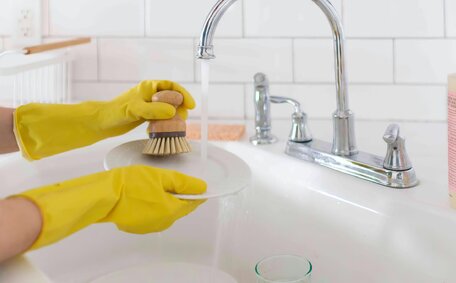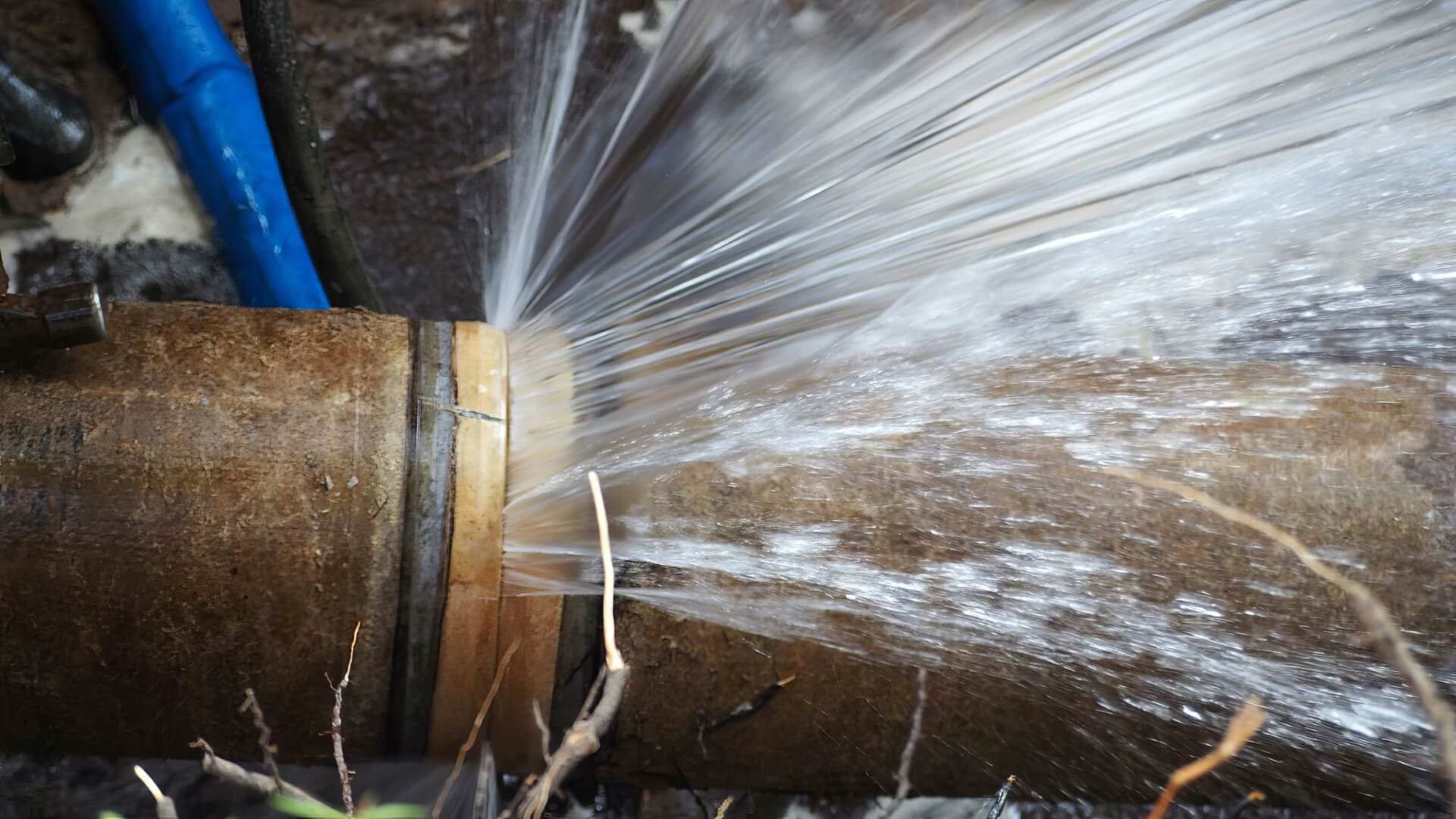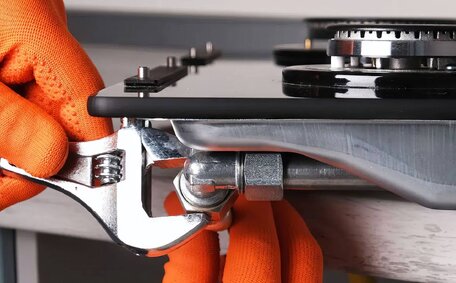Identifying Plumbing Emergencies
Promptly determine whether your plumbing situation constitutes an emergency that requires immediate action to prevent damage or harm. Severe storms can lead to burst pipes, which are definite emergencies requiring professional repair. Conversely, seemingly minor issues such as a dripping tap or constantly running toilet can escalate if ignored, potentially compromising your plumbing system.
Consider these indicators that your plumbing issue is an emergency requiring immediate assistance:
- Water is flooding inside your home from broken pipes, water heater leaks, etc.
- Complete loss of hot water throughout the home.
- Total lack of water service to the entire home.
- Sewage backing up into bathtubs, toilets, sinks, etc. from main sewer line blockages.
- Strong natural gas odours indicating a dangerous gas leak.
- Major sinkholes or water bubbling up on your property pointing to a serious underground pipe problem.
While temporary solutions may suffice for minor issues, urgent plumbing mishaps often demand professional equipment and expertise to ensure safe and lasting repairs. It’s essential to make sure you know when to call a professional plumber, particularly for emergencies around your premises.
Assessing if DIY Repair is Appropriate
To decide how to tackle a plumbing issue, whether personally or with professional assistance, consider these critical factors:
- Your plumbing skills/knowledge - Can you diagnose the root cause and perform repairs properly? Insufficient expertise increases the likelihood of further issues.
- Tools/materials needed - Many plumbing tasks require specialist tools that homeowners typically do not have. Do you possess the necessary equipment and parts?
- Issue severity - Minor leaks or superficial cracks may be DIY-friendly. Substantial flooding or sewer backups demand a professional to be taken care of adequately.
- Permits required - Some plumbing repairs require you to apply for permits from local authorities, a process your plumber can apply for on your behalf.
- Potential damages - Will a DIY fix suffice, or will the issue re-emerge in just a few days, risking further structural damage?
In emergency situations, Professional repairs typically offer the safest and most reliable solution. Take care to consider if the plumbing issue meets all the above criteria before attempting a DIY fix. When in doubt, it’s prudent to consult a professional plumber.
Safety Risks of DIY Repairs
Deciding between DIY plumbing repairs and calling professionals is challenging, especially during emergencies. Key risks include:
- Electrocution - Handling electrical components near damp areas increases the risk of electric shock, much like during emergency glass repair situations.
- Gas leaks - Repairs to gas pipes without professional tools risk dangerous explosions.
- Falls - Climbing ladders or into tight spaces for plumbing access can lead to accidents, causing injuries or the need for additional repairs.
- Infection - Contact with sewage due to leaks or backups poses health risks and can aggravate medical conditions without proper protective gear.
- Structural damages - Botched repairs failing to address flooding can result in significant water damage, progressively undermining your home’s condition.
With professional training and specialised tools, Your local Chatswood licenced plumbers can quickly and safely handle any plumbing emergency. Attempting DIY fixes often escalates issues and dangers significantly. Call 1300 349 338 at the first sign of a plumbing emergency to avoid safety hazards and ensure next day service.
Long-Term Impacts of Improper Repairs
DIY fixes can lead to temporary solutions that might resolve immediate problems but create persistent issues over time. Significant long-term repercussions include:
- Continued leaks leading to mould/water damage - Poorly executed leak repairs will deteriorate, leading to persistent moisture accumulation within walls.
- Compromised structures can affect the integrity of a building - Incorrect pipe or sewer line repairs undermine foundations, leading to sinkholes or collapsed walls/floors.
- Hazardous materials risks - DIY repairs can inadvertently disturb hazardous materials such as asbestos or lead, elevating long-term health and environmental risks.
Frequent DIY repair attempts not only exacerbate the initial problem but may also lead to more complex repairs later. Whereas Chatswood’s licenced professionals, serving your area, leverage advanced tools and materials proven to outlast DIY fixes for decades after installation.
Choosing professional repairs customised to your requirements from the outset reduces property damage and costly future repairs. Don’t settle for a mere temporary fix with DIY efforts - our team is ready to provide a lasting solution. Contact us today.
Weighing Costs of DIY vs Professional Services
A significant factor in choosing between DIY efforts and professional help during a plumbing emergency is the comparison of immediate and future costs:
Typical DIY Costs
- Parts/materials - Typically ranging from approximately $50 to $300, depending on the required supplies
- Tools - No cost with existing tools; upwards of $100 for purchasing specialised plumbing equipment
- Your personal time/effort - Dependent on the complexity of the project
Typical Professional Service Costs
- Hourly rate - $80 - $150 per hour on average for emergency plumbing services
- Parts/materials - Usually covered by the hourly rate, avoiding extra charges for supplies
- Experience - Jobs completed faster with less risk of complications or need to redo faulty repairs
While DIY repairs may seem cheaper upfront, Hiring a professional can ultimately save money by preventing the higher costs associated with unsuccessful DIY fixes. Additionally, engaging professionals usually qualifies for coverage under your claim with the insurance company, depending on your policy, unlike DIY efforts.
For emergency plumbing issues, the reliability, speed, safety and longevity of repairs should outweigh strict cost comparisons. Professional plumbers in Chatswood have the knowledge to reduce damage and costly renovations, proving a sound investment for the long-term health of your plumbing.
Evaluating Your Skill Level and Tool Availability
Embarking on DIY plumbing repairs necessitates a truthful evaluation of your skills and the tools at your disposal. Consider the following checklist when deciding if you can safely and effectively take on plumbing fixes yourself:
Skills Needed
- Accurately identifying and diagnosing the underlying causes of problems such as leaks, blockages and pressure issues
- Technical knowledge of how plumbing systems work together within a home
- Ability to handle basic repairs like replacing washers, pipes, toilet parts etc.
- Physically capable to access confined spaces and manage tasks without help, which is particularly important if you live alone
Essential Tools
- Use a bucket to catch water and prevent flooding
- Adjustable wrenches to grip and turn fittings
- Channel-type pliers to grab, twist and cut material
- Hacksaw for cutting plastic, copper or steel pipes to length
- Specialty tools like basin wrenches, pipe wrenches and more
In challenging situations like gas line breaks or sewer blockages, only professional intervention guarantees safety and quality. Water and gas systems require cautious handling because of potential life safety hazards, high pressure and risk of toxicity.
Chatswood Plumbing, with round-the-clock service, has the expertise and professional-grade equipment to swiftly and safely address any residential or commercial plumbing emergency in the Chatswood area. Contact us on 1300 349 338 for assistance.






